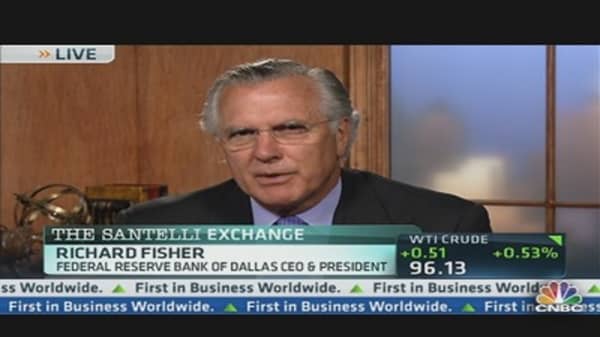Politicians in Washington are holding back the U.S. economy and job growth can't reach its full potential until Congress gets its act together, said Richard Fisher, president of the Federal Reserve Bank of Dallas.
In an environment where monetary policy is "extremely accomodative," Fisher is disappointed that the economy hasn't seen job creation that should follow. "Inflation is not an issue, I don't think you can say that inflation is doing any damage to the economy," he said Wednesday on CNBC's "Squawk on the Street."
"The question why aren't we getting job creation, I think we do know the answer: fiscal policy," he said. "You cannot make decisions under conditions of total uncertainty. We have a massive fog here, our businesses are well structured from a financial standpoint. Our companies are rich with cash, there's a lot of cash sitting on the sidelines."
"Why hasn't this been going into the economy? The answer, I think, is pretty clear, but I think it's clear to everybody now," he said. Uncertainties include taxes, government spending, regulatory pressures and health care costs, "so the fault lies with the fiscal authorities and until they get their act together, give us some certainty, I don't think we're going to get the kind of growth we'd like to see."
"We have great potential in this country, and it's not being realized because the politicians are holding us back," he said.



